jiangsu rongsheng heavy industries group quotation

This announcement is issued by China Rongsheng Heavy Industries Group Holdings Limited (the "Company") in accordance with Rules 13.09 and 13.10B of the Rules Governing the Listing of Securities on The Stock Exchange of Hong Kong Limited and Part XIVA of the Securities and Futures Ordinance (Chapter 571 of the Laws of Hong Kong).
Reference is made to the announcement of the Company dated 21 March 2012 in respect of the issue of medium-term notes by its subsidiary, Jiangsu Rongsheng Heavy Industries Co., Ltd. (江 蘇熔盛重工有限公司) ("Jiangsu Rongsheng Heavy Industries"), in the People"s Republic of
Pursuant to the relevant rules and regulations in the PRC, the unaudited financial information (the "Unaudited Quarterly Financial Information") of Jiangsu Rongsheng Heavy Industries, which is indirectly owned by the Company as to approximately 96.38%, and its subsidiaries for the nine months ended 30 September 2014 was published on http://www.chinabond.com.cn/www.chinabond.com.cn and www.chinamoney.com.cn on 17 October 2014.
Set out below are the key unaudited financial figures of Jiangsu Rongsheng Heavy Industries and its subsidiaries for the nine months ended 30 September 2014 as included in the Unaudited Quarterly Financial Information, which have been prepared in accordance with the PRC Generally Accepted Accounting Principles and have not been audited:
For the nine months ended 30 September 2014, Jiangsu Rongsheng Heavy Industries and its subsidiaries recorded an operating loss and a total loss of approximately RMB2,778.6 million and RMB3,362.2 million respectively, and a net loss of approximately RMB3,362.2 million
The net loss incurred for the nine months ended 30 September 2014 was primarily due to the low prices of shipbuilding orders in depressed market conditions and the diminishing profitability of the conventional shipbuilding business. The net loss was also due to the decline of production activities of Jiangsu Rongsheng Heavy Industries despite considerable fixed production cost and the adjustment of the contract price of certain shipbuilding contracts. Such loss may lead to adverse effects on the production and operation, financial position and repayment capacity of Jiangsu Rongsheng Heavy Industries. Jiangsu Rongsheng Heavy Industries has been proactively adopting measures to improve operational performance and financial position, and to mitigate liquidity pressure. These measures include but are not limited to: actively negotiating with principal banks in the PRC on the terms and conditions of the extension and renewal of borrowings; obtaining financial support from a shareholder of its holding company; negotiating for better payment terms and revising up prices of certain existing shipbuilding orders; redesigning operation flow and controlling costs for existing shipbuilding orders; maximizing sales efforts and obtaining the appropriate project-based financing; establishing strategic cooperation with key suppliers with a view to reduce the costs of supplies.
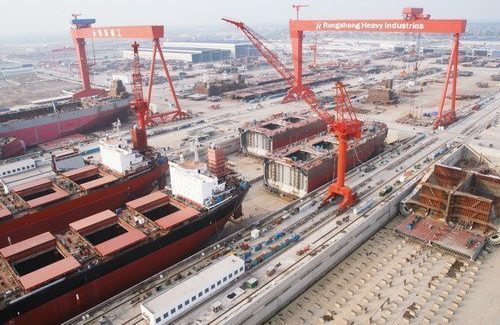
Hong Kong Exchanges and Clearing Limited and The Stock Exchange of Hong Kong Limited take no responsibility for the contents of this announcement, make no representation as to its accuracy or completeness and expressly disclaim any liability whatsoever for any loss howsoever arising from or in reliance upon the whole or any part of the contents of this announcement. CHINA RONGSHENG HEAVY INDUSTRIES GROUP HOLDINGS LIMITED
(Incorporated in the Cayman Islands with limited liability) (Stock Code: 01101) LITIGATION INVOLVING JIANGSU RONGSHENG HEAVY INDUSTRIES
The Company would like to announce that Jiangsu Rongsheng Heavy Industries has recently received a copy of the written verdict from the Supreme People"s Court ( 最高人民法院 )
By Order of the Board China Rongsheng Heavy Industries Group Holdings Limited LEE Man Yee Company Secretary
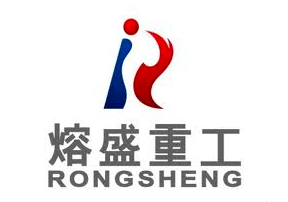
RUGAO, China/SINGAPORE (Reuters) - Deserted flats and boarded-up shops in the Yangtze river town of Changqingcun serve as a blunt reminder of the area"s reliance on China Rongsheng Heavy Industries Group, the country"s biggest private shipbuilder.A view of the Rongsheng Heavy Industries shipyard is seen in Nantong, Jiangsu province December 4, 2013. REUTERS/Aly Song
The shipbuilder this week predicted a substantial annual loss, just months after appealing to the government for financial help as it reeled from industry overcapacity and shrinking orders. Rongsheng lost an annual record 572.6 million yuan ($92 million) last year, and lost 1.3 billion yuan in the first half of this year.
While Beijing seems intent to promote a shift away from an investment-heavy model, with companies reliant on government cash injections, some analysts say Rongsheng is too big for China to let fail.
Local media reported in July that Rongsheng had laid off as many as 8,000 workers as demand slowed. Three years ago, the company had about 20,000 staff and contract employees. This week, the shipbuilder said an unspecified number of workers had been made redundant this year.
“Without new orders it’s hard to see how operations can continue,” said one worker wearing oil-spattered overalls and a Rongsheng hardhat, adding he was still waiting to be paid for September. He didn’t want to give his name as he feared he could lose his job.
“Morale in the office is quite low, since we don’t know what is the plan,” said a Rongsheng executive, who declined to be named as he is not authorized to speak to the media. “We have been getting orders but can’t seem to get construction loans from banks to build these projects.”
While Rongsheng has won just two orders this year, state-backed rival Shanghai Waigaoqiao Shipbuildinghas secured 50, according to shipbroker data. Singapore-listed Yangzijiang Shipbuildinghas won more than $1 billion in new orders and is moving into offshore jack-up rig construction, noted Jon Windham, head industrials analyst at Barclays in Hong Kong.
Frontline, a shipping company controlled by Norwegian business tycoon John Fredriksen, ordered two oil tankers from Rongsheng in 2010 for delivery earlier this year. It now expects to receive both of them in 2014, Frontline CEO Jens Martin Jensen told Reuters.
Greek shipowner DryShips Inchas also questioned whether other large tankers on order will be delivered. DryShips said Rongsheng is building 43 percent of the Suezmax vessels - tankers up to 200,000 deadweight tons - in the current global order book. That"s equivalent to 23 ships, according to Rongsheng data.
Speaking at a quarterly results briefing last month, DryShips Chief Financial Officer Ziad Nakhleh said Rongsheng was “a yard that, as we stated before, is facing difficulties and, as such, we believe there is a high probability they will not be delivered.” DryShips has four dry cargo vessels on order at the Chinese firm.
Rongsheng declined to comment on the Dryships order, citing client confidentiality. “For other orders on hand, our delivery plan is still ongoing,” a spokesman said.
At least two law firms in Shanghai and Singapore are acting for shipowners seeking compensation from Rongsheng for late or cancelled orders. “I’m now dealing with several cases against Rongsheng,” said Lawrence Chen, senior partner at law firm Wintell & Co in Shanghai.
Billionaire Zhang Zhirong, who founded Rongsheng in 2005 and is the shipyard"s biggest shareholder, last month announced plans to privatize Hong Kong-listed Glorious Property Holdingsin a HK$4.57 billion ($589.45 million) deal - a move analysts said could raise money to plug Rongsheng"s debts.
Meanwhile, Rongsheng’s shipyard woes have already pushed many people away from nearby centers, and others said they would have to go if things don’t pick up. Some said they hoped the local government might step in with financial support.
The Rugao government did not respond to requests for comment on whether it would lend financial or other support to Rongsheng. Annual reports show Rongsheng has received state subsidies in the past three years.

HONG KONG (Reuters) - Jiangsu Rongsheng Heavy Industries Co Ltd has appointed Morgan Stanleyand JP Morganto finalize plans for its long-awaited IPO in Hong Kong, aiming to raise up to $1.5 billion in the fourth quarter, sources told Reuters on Tuesday.
This is Rongsheng’s latest bid to go public after it failed to raise more than $2 billion from a planned IPO in Hong Kong in 2008, mainly as a result of the global financial crisis.
Rongsheng"s early main shareholders included an Asia investment arm of Goldman Sachs, U.S. hedge fund D.E. Shaw and New Horizon, a China fund founded by the son of Chinese Premier Wen Jiabao.
The three investors sold off their stakes in Rongsheng for a profit early this year, said the sources familiar with the situation. Representatives for the banks, funds and Rongsheng all declined to comment.
Rongsheng’s revived IPO plan comes at a challenging time. Smaller domestic rival, New Century Shipbuilding, slashed its Singapore IPO in half last week, planning to raise up to $560 million from the originally planned $1.24 billion due to weak market conditions.
Given uncertainty in the global shipbuilding business environment as well as growing concerns over a huge flow of fund-raising events in Hong Kong, investment bankers suggest the potential size for Rongsheng could be $1 billion to $1.5 billion, according to the sources.
Investors have turned cautious on the industry after it was dealt a heavy blow by the economic downturn, with orders shrinking last year and the sector yet to fully recover.
Rongsheng is seeking to tap capital markets to fund fast growth and aims to catch up with bigger state-owned rivals such as Guangzhou Shipyard International Co Ltd.
Rongsheng won a $484 million deal to build four ships for Oman Shipping Co last year. The vessels would carry exports from an iron ore pellet plant in northern Oman which is expected to begin production in the second half of 2010.
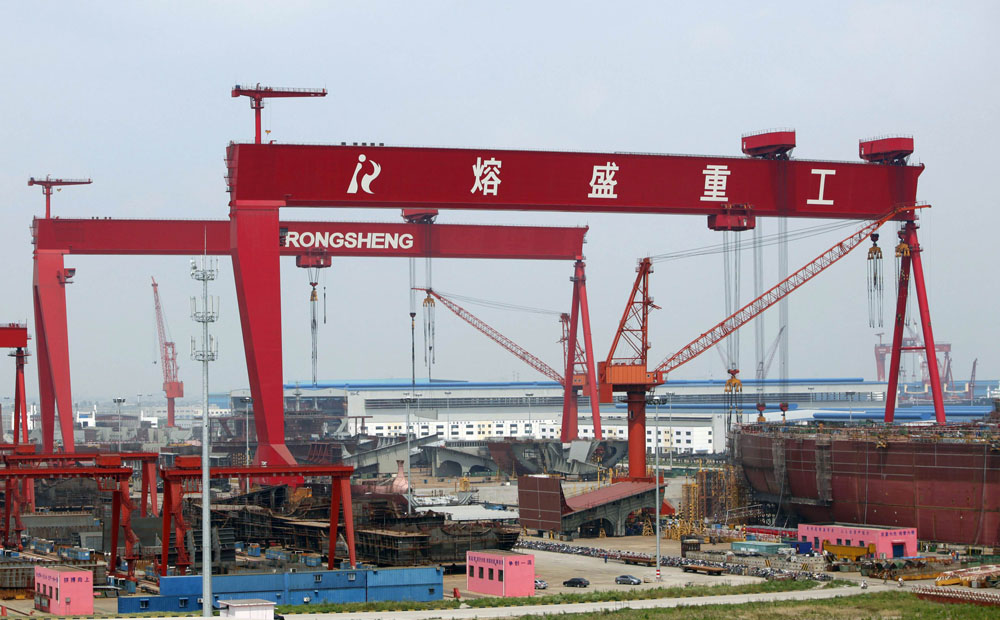
Another once-leading privately-owned yard China Huarong Energy Company, previously and better known as China Rongsheng Heavy Industries, continues to struggle with debts and ongoing talks with its creditors. The shipbuilder with huge yard facilities is now literally a �ghost yard�, where operations have ceased as funds dried up.
Jiangsu Rongsheng Heavy Industries Group Co. used to employ more than 30,000 people in the eastern city of Rugao. Once China�s largest shipbuilder, by 2015 Rongsheng was on the verge of bankruptcy. Orders had dried up and banks are refusing credit. Questions have been raised about the shipyard�s business practices, including allegations of padded order books. And Rongsheng was apparently behind on repaying some of the 20.4 billion yuan in combined debt owed to 14 banks, three trusts and three leasing firms.
Rongsheng is on the ropes now that it had completed a multi-year order for so-called Valemax ships for the Brazilian iron ore mining giant Companhia Vale do Rio Doce. The last of these 16 bulk carriers, the Ore Ningbo, was delivered in January 2015. With a carrying capacity of up to 400,000 tons, Valemaxes are the world�s largest ore carriers. Vale hired Rongsheng to build the ships starting in 2008, and has tolerated the shipyard�s slow pace: The Ore Ningbo was delivered three years late. Rongsheng employees said the Ore Ningbo may have been the shipyard�s last product because no new ship orders are expected and all contracts for unfinished ships have either been canceled or are in jeopardy.
Founder and former chairman Zhang Zhirong started the company in 2005 with money made when he worked as a property developer in the 1990s. The new shipyard stunned the industry by clinching major vessel orders from the start, even at a time when most of the world�s shipyards were slumping. Rongsheng�s success attracted investors and banks to the company�s side, fueling its expansion.
The shipyard, a sprawling facility spread across one-third of Changqingsha Island in the middle of the Yangtze River, suffered from a lack of capacity and management problems. As a result, the company had trouble meeting its contract obligations, including delivery timetables. Rongsheng�s problems were tied to difficulties with delivering ships. Many of Rongsheng�s order cancellations were due to its own delivery delays.
After the global financial crisis of 2008, many ship owners could no longer afford paying in advance for new vessels. So builders such as Rongsheng started arranging up-front financing with Chinese banks that got projects off the ground.
Rongsheng built ships with a combined capacity of 8 million tons in 2010 and was preparing to begin filling US$ 3 billion in new orders the following year. But the company�s 2011 orders wound up totaling only US$ 1.8 billion. That same year, Rongsheng�s customers canceled contracts for 23 new vessels.
In 2012, Rongsheng received orders for only two ships. Layoffs ensued, with some 20,000 workers getting the axe. The company closed the year with a net loss of 573 million yuan, down from a 1.7 billion yuan net profit in 2011 and despite 1.27 billion yuan in government subsidies. The bleeding worsened in 2013, with 8.7 billion yuan in reported losses. Despite a recovery of the Chinese shipbuilding industry in 2014, Rongsheng saw no relief, as its clients canceled orders for 59 vessels that year.
Roxen Shipping, a company controlled by Chinese businessman Guan Xiong, reportedly stepped in to rescue some US$ 2 billion worth of ship contracts that were canceled by Rongsheng�s other customers. Without these orders, Rongsheng never would have maintained its status as the No. 1 shipbuilder in China from 2009 to 2013.
Rongsheng�s capital crunch worsened since February 2014, when the China Development Bank (CDB) demanded more collateral after the company failed to make a scheduled payment on a 710 million yuan loan. When Rongsheng refused, the CDB called the loan. Other banks that issued loans to the shipbuilder had taken similar steps.
Rongsheng�s weak financial position was highlighted by a third-quarter 2014 financial report in which the company posted a net loss of 2.4 billion yuan. It also reported 31.3 billion yuan in liabilities, including 7.6 billion yuan worth of outstanding short-term debt.
It would cost at least 5 billion yuan to restart operations at Rongsheng�s facility, plus they have a huge amount of debt. Buying Rongsheng would not be a good deal.
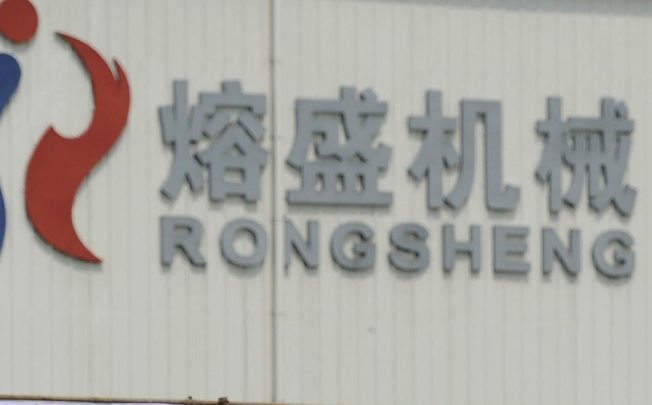
HONG KONG (MarketWatch) -- Jiangsu Rongsheng Heavy Industries Group Co., a privately owned Chinese shipbuilder, received approval for its US$1.2 billion-US$1.5 billion initial public offering from the Hong Kong stock exchange on Thursday, a person familiar with the situation said Friday.
Rongsheng manufactures ships, marine vessels and carriers. The company also offers bulk carriers, ore carriers and oil tankers. In 2009, the company won a US$484 million order to build four ships for Oman Shipping Co.

Hundreds of sub-contract workers had protested outside the shipbuilder’s production base in Rugao, Jiangsu province on Tuesday, demanding unpaid wages and job offers, the state-run Xinhua news agency reported on Wednesday.
Rongsheng admitted to Xinhua that it had terminated the contracts of those workers on low production utility rate due to a lack of new orders this year. But it denied withholding their wages.
Meanwhile, the China Shipbuilding Industry Corp (CSIC) has signalled an interest in taking over Rongsheng, subject to an attractive offer, according to a report by Chinese business newspaper 21st Century Business Herald, which quoted a source at CSIC.
Rongsheng was cast into the limelight in 2008 after it won a $1.6 billion order from Brazilian iron ore miner Vale for a dozen 400,000-deadweight-tonne very large ore carriers.
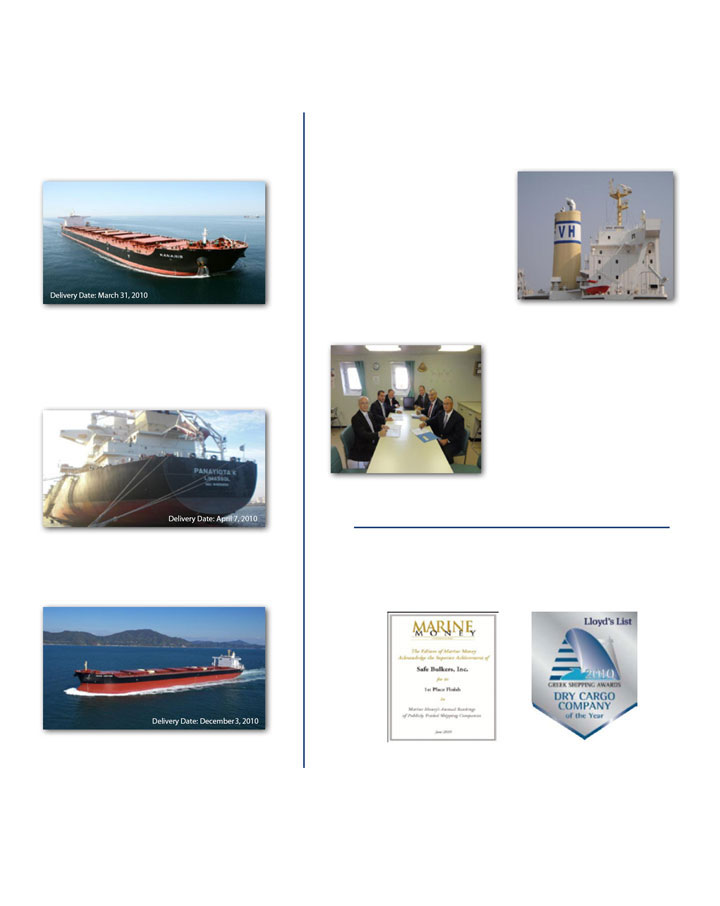
About two thousand workers at China’s biggest private shipbuilder in the eastern province of Jiangsu have clashed with police after they blockaded the plant"s entrance in protests over unpaid salary arrears, local media reports and workers said on Wednesday.
The workers from the Nantong shipyard owned by the troubled Rongsheng Heavy Industries have been on strike since Sunday after the company announced that they had to go on forced leave for a week.
The workers" strike comes after Rongsheng reported a loss of 49 million yuan (U.S.$8 million) in the first quarter of 2013, citing "the most difficult time yet" in the two recent quarters, shipping website SinoShip News said.
Lei Dong, secretary to Rongsheng"s president, told the paper the layoffs are not a sign of financial trouble at the shipbuilder, but were rather the result of "restructuring," saying more than half the employees who were laid off were subcontractors and the remainder full-time employees.

MS Ore Brasil, previously known as Vale Brasil, is a very large ore carrier owned by the Brazilian mining company Vale. She is the first of seven 400,000-ton very large ore carriers (VLOC) ordered by Vale from Daewoo Shipbuilding & Marine Engineering in South Korea and twelve from Jiangsu Rongsheng Heavy Industries in China, which are designed to carry iron ore from Brazil to Asia along the Cape route around South Africa.Chinamax, these ships are generally referred to as bulk carriers ever built.
Ore Brasil is propelled by a single MAN B&W 7S80ME-C8 two-stroke low-speed diesel engine directly coupled to a fixed-pitch propeller.heavy fuel oil per day.Ore Brasil in fact one of the most efficient long-distance dry bulk carriers in service, and for this reason the ship received the Clean Ship award of 2011 in the Norwegian shipping exhibition Nor-Shipping. Vale has reported 35 % drop in emissions per ton of cargo in comparison to older ships.




 8613371530291
8613371530291